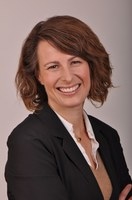LGBT patients often struggle to find a provider who can meet their needs, and a Kentucky medical school aims to change that by making inclusiveness part of its curriculum.

Stacie Steinbock, director of the LGBT satellite center at the University of Louisville's Health Sciences Center campus, told FierceHealthcare that her office is often the first line of contact for both LGBT students and Louisville residents, and it quickly became clear that there was a demand for physicians who are familiar with the needs of these patients.
So, in collaboration with the University of Louisville School of Medicine, its office of Community Engagement and community members, Steinbock and her team worked to develop a curriculum that would be part of medical students' ongoing education, so all trainees would experience it.
"From the beginning, we wanted to not have isolated content," Steinbock said.
"It's very tempting to do that—pluck one faculty member who's good, and you know it will be great. It's hard to look away from that model."
RELATED: Transgender patients worry about HHS push to overturn ACA provision
The two-year overhaul adapted more than 50 hours of curriculum to be more LGBT-friendly, including discussions of more inclusive language. For example, the students are taught to avoid gendered language when discussing sensitive procedures; transgender men may still need gynecological care, for instance, so instead of calling it a "female exam" the curriculum suggests the gender-neutral "pelvic exam."
Many LGBT patients avoid medical care, and this especially prevalent among the trans population. A recent poll from National Public Radio, the Robert Wood Johnson Foundation and the Harvard T.H. Chan School of Public Health found that 31% of transgender patients lack regular access to healthcare.
Nearly one-fifth of LGBT patients (18%) avoid care even when in need because of concerns about discrimination, the poll found. Many physicians lack the training to care for LGBT patients effectively.
RELATED: Transgender actors can help medical residents provide more sensitive care
Including that voice in shaping the new curriculum was crucial, Steinbock said. The university established a community advisory board to review and offer suggestions on the curriculum changes. In the first year, it hosted an LGBT health summit with a focus on transgender healthcare.
The summit allowed residents, faculty, healthcare providers, mental health workers and LGBT people to have in-depth conversations about the state of transgender healthcare and what can be done to make it better, she said.
"The was a really beautiful part of the project, really being able to listen to what our community needed and respond to that," Steinbock said.
RELATED: Global survey suggests doctors' religious affiliation affects care for homosexual patients
The response to the new curriculum has so far been positive, Steinbock said. Students said they appreciate that the information is embedded in other lessons, so the message is reinforced by multiple faculty members with varying degrees of knowledge and experience with LGBT patients.
Not every student coming into the medical school was comfortable with the content, she said, but it offered an opportunity to open their minds and shift attitudes. The new curriculum has, however, drawn interest from LGBT med students, some of whom have said they came to the University of Louisville because of it.
The university is working to make its curriculum available to other medical schools, Steinbock said. But, she added, it's crucial that university leadership is fully on board.
Implementing a program like this could lead to concerns and questions from the community and from prospective students and their families. So it's key to have a "courageous" leadership team ready to handle those hard discussions, she said.